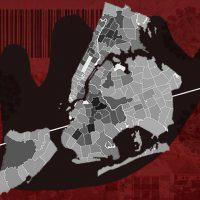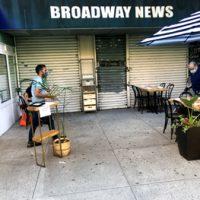With a few weeks left until cold weather scares away outdoor diners, many are questioning whether the current 25 percent capacity limit on indoor dining will be enough for restaurants to keep operating.
In a report, the think tank Center for an Urban Future asked more than 20 city leaders and experts how to give eateries a realistic shot at survival, and potentially even success. Here are five of their plethora of solutions.
Read more



1. Incentivize landlords to “lend” vacant space
Some restaurants have been using nearby sidewalk space for outdoor dining, although the legality of that remains questionable.
Tim Tompkins, president of the Times Square Alliance, recommends that the city provide a tax credit to landlords for allowing restaurants to spill over into their empty space.
2. Change zoning, licensing and building codes to allow outdoor dining long-term
Some rules have already been lifted to let restaurants use parking lanes and sidewalks. But now that outdoor dining is permanent, the Wild West of outside seating must be regulated.
Carl Weisbrod of HR&A Advisors, a former chairman of the City Planning Commission, wants the city to create a commission that would examine sidewalk usage for small businesses.
3. Stop surprise inspections
A restaurant can lose its liquor license or be shut down as a result of an inspection done without notice.
In August, The Real Deal mapped the thousands of complaints against businesses in each borough. Some received dozens of complaints, jeopardizing their ability to stay in business.
“This is a policy shift that could be easily implemented and would remove the gotcha that normally plays out in the city’s restaurant and bar scene at a time when restaurants are dealing with new challenges,” writes Andrew Rasiej, founder and CEO of Civic Hall. “Make it more predictable. You get your car inspected on schedule. Why not your restaurant?”
4. Temporarily interiorize streets
The city’s Open Streets program has closed certain corridors to traffic, but what about keeping winter out, too?
“I would like to see a combination of simple greenhouse construction and street closure program to make some streets into temporary arcades like in many European and Australian cities,” suggested Jing Liu, principal of Brooklyn-based architecture firm SO-IL.
5. Foster partnerships between offices and small businesses
Just 10 percent of Manhattan employees are back in the office. But how many are eating out?
Jessica Lappin and Joshua Nachowitz of the Alliance for Downtown New York propose that companies provide a small credit to employees who dine at local restaurants.
